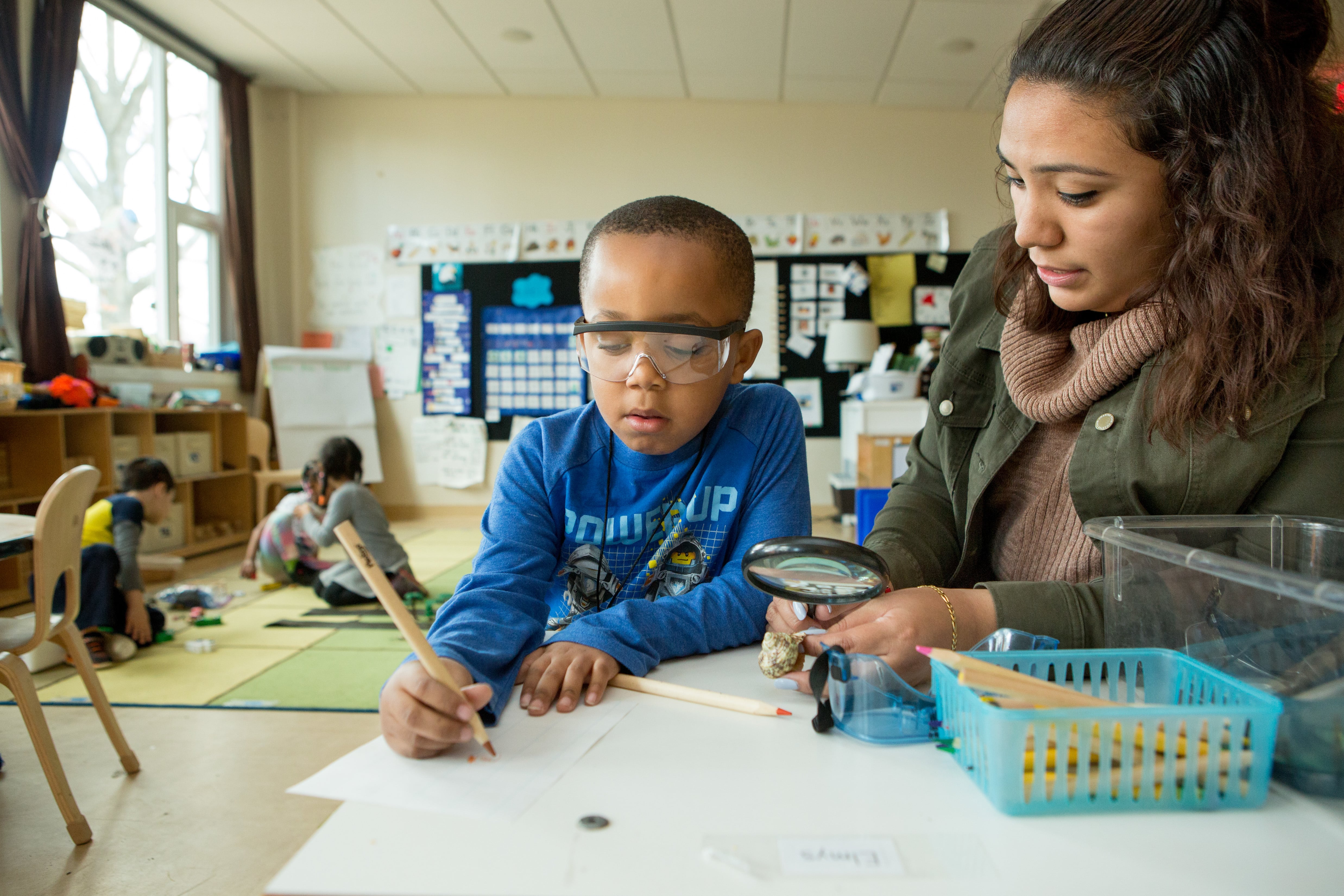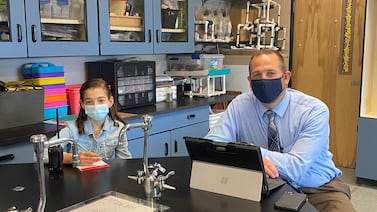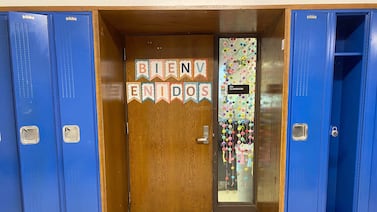More than 1,000 young Denver students with disabilities missed all or some of their legally required speech therapy recently due to staffing shortages, according to a state decision that found Denver Public Schools in violation of federal requirements.
The March 18 decision was in response to a complaint filed with the Colorado Department of Education by the unnamed family of a 6-year-old boy.
The boy, who is in kindergarten, has a developmental delay and is nonverbal, the decision says. He uses an augmentative and alternative communication device, or AAC, to communicate by pushing buttons that convey words or phrases.
The boy’s special education plan required he receive 24 hours of therapy from a speech language pathologist between August and February: 12 hours inside the classroom and 12 hours outside the classroom, where there are fewer distractions.
But his Denver elementary school didn’t have a speech language pathologist at all during that time, the decision from the state education department says. After the school reached out for help, a district-level speech language pathologist provided the kindergartener with three hours of therapy in January and February. But those services fell far short of what his plan required.
The problem is widespread. A state complaints officer found that 28 Denver elementary schools did not have speech language pathologists for some period of time between January 2022 and now. Many of the shortages were lengthy. Thirteen elementary schools were without a speech language pathologist for at least one full semester this school year, the decision says.
Parents and therapists have been complaining about the problem to the school board all year.
“Right now, for my son, the only option I have is to pull him out of school to take him to speech therapy,” parent Danella Pochman told the school board in January.
“And I don’t think that feels right to me,” said Pochman, whose son attends Steele Elementary School, which she said hadn’t had a therapist all year. “I think he deserves to have that training, that communication education, within his kindergarten classroom.”
Karen Burton told the school board last month that her preschool son met with a speech language pathologist at his school, Holm Elementary, “very few times” during the fall. The therapist left the school in December, she said, and hadn’t been replaced as of February.
“I have been told before that as a parent of a special needs child, I will have to fight for everything that my kid gets,” she said. “I am disturbed that I have had to go to so much work to get any communication from the district about their plans and responsibilities to meet my son’s needs.”
In a statement, Denver Public Schools said it is aware that “staffing shortages negatively impact our students’ growth and progress on their goals, which is something we strive to avoid at all costs.” The district said it will work to improve its approach to staffing and is “committed to addressing the remedies” outlined by the state in the decision.
The Colorado Department of Education ordered DPS to submit a corrective action plan by April 18. The state also awarded the 6-year-old boy compensatory services. The district must provide the boy with 16 hours of speech therapy by December to make up for what he missed.
DPS has until April 25 to come up with a list of the other 1,000 students who missed speech therapy, the decision says. The district must send a letter to parents by May 22 notifying them that their children may get compensatory services, and it must determine if those students are eligible by Sept. 29. Only students who are behind on their goals are likely to be eligible for those services.
Although the district has until next year to provide the compensatory services, the decision encourages DPS to start “as soon as practicable, including during the summer of 2023.”
DPS officials attributed the missed therapy to a nationwide shortage of speech language pathologists, according to the decision. As of March 1, nine Denver schools had open speech language pathologist positions, the decision says.
The district is trying to recruit candidates by offering referral and signing bonuses, as well as incentives for retired therapists to return, the decision says. The district is also working with agencies to hire contract therapists to fill vacancies, and it has started hiring teletherapists.
Speech language pathologists and other specialized service providers — a category that includes school psychologists, counselors, social workers, and nurses — have been raising the alarm for years about a culture of too much work and too few staff.
In August, longtime Denver speech therapist Jenni Scobey told the school board she was worried about “the dire state of the speech department in the Denver Public Schools.”
“One of the few new employees who chose to join our team shared that colleagues in our field that previously worked in DPS have warned them not to work in the district, stating that they were underpaid, undervalued, and overworked,” Scobey said.
Michelle Horwitz, a bilingual speech language pathologist, said she spent most of the first day of school in August “creating a coverage system for 40 schools that do not have a speech language pathologist. Me, an educator on the ground, creating a system so we can try to scrape together our department and pull more people thinner in order to cover these vacancies.”
“We need change,” she said.
Pam Bisceglia, the executive director of Advocacy Denver, an organization that advocates for people with disabilities and their families, filed the complaint on behalf of the 6-year-old boy. She said the decision points to the need for a culture shift in DPS.
“Denver Public Schools has lost truly some of the best and brightest general education teachers, special education teachers, and providers,” she said. “The culture is not a good culture.”
Missed services have real consequences for students, too. As the school year went on and the 6-year-old boy who uses the AAC device missed more and more speech therapy, he began to act out by pulling hair, pushing classmates, and hitting teachers, the decision says. “Historically, his behaviors often stem from frustrations around communication,” it says.
One bright spot in his year was when the district-level speech therapist spent an hour in the boy’s classroom in mid-February. The speech therapist taught his kindergarten classmates about AAC devices, modeled how to use them, and let them try the devices for themselves.
“This was the best day [student] has had all year,” the decision says, “and he even volunteered to participate in a lesson later that day.”
Melanie Asmar is a senior reporter for Chalkbeat Colorado, covering Denver Public Schools. Contact Melanie at masmar@chalkbeat.org.








